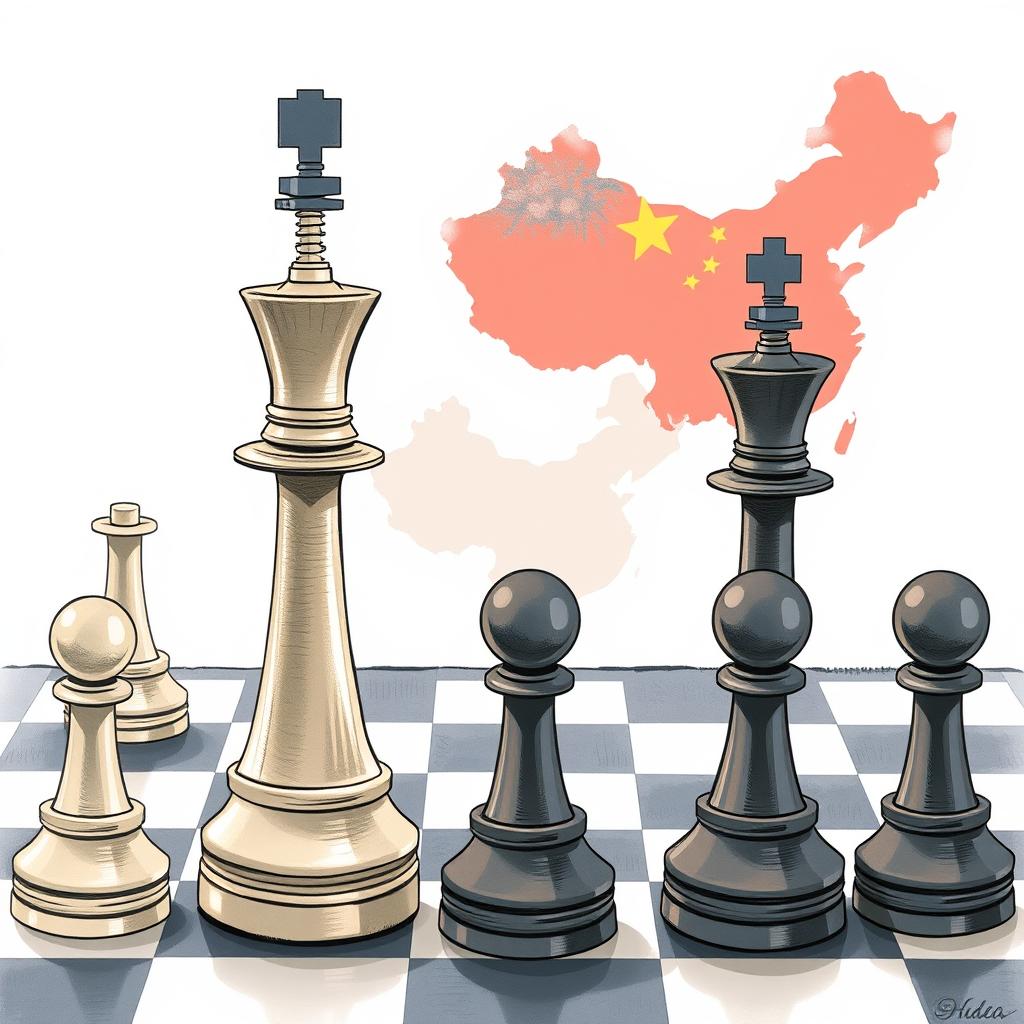US Chip War Risks Handing Victory to China

The United States’ attempt to restrict exports of advanced computer chips to China may be inadvertently accelerating the development of a domestic Chinese semiconductor industry and ultimately ceding global market share, analysts warn. While the Trump administration aims to slow China’s technological advancement, particularly in areas like artificial intelligence and supercomputing, experts suggest the policy is having the opposite effect – fueling innovation and self-reliance within Chinese firms.
Jack Gold, principal analyst at J.Gold Associates, bluntly stated the US is “handing China a big win” as it strives to build its own chip business. He predicts that once Chinese companies become competitive, they will aggressively pursue global sales, making it difficult for US manufacturers to regain lost ground.
The financial impact on US chip giants is already becoming apparent. Nvidia anticipates a $5.5 billion hit, while Advanced Micro Devices (AMD) forecasts potential losses of up to $800 million, according to filings with the Securities and Exchange Commission. These losses stem from new licensing requirements for exporting semiconductors to China, specifically Nvidia’s H20 chip and AMD’s MI308 GPUs. The US government cited concerns that these chips could be used in Chinese supercomputers, prompting the need for export licenses.
Nvidia had specifically designed the H20 chip to comply with previous export rules for the Chinese market, but the tightened restrictions present a significant obstacle.
Independent tech analyst Rob Enderle believes the situation presents a “godsend” for Chinese chipmakers, particularly Huawei, and will accelerate their efforts to become market leaders. He argues the US policy is a “quick way to hand over US leadership” in microprocessors and GPUs.
The Chinese government possesses both the resources and the motivation to bolster its chip industry, analysts say. Beyond the direct financial impact on US companies, the tariffs and export controls are alienating allies and incentivizing them to seek alternative chip sources from China. This creates a competitive disadvantage for US firms across the board.
While Nvidia CEO Jensen Huang maintains the company can comply with the new regulations without hindering technological progress, and Wedbush analyst Dan Ives acknowledges Nvidia’s central role in the US-China tech competition, the prevailing sentiment among experts is one of concern. Ives anticipates further escalation in the “chip wars.”
In my view, the US strategy, while intended to protect national security and maintain technological dominance, appears short-sighted. Simply restricting access to technology doesn’t eliminate the demand or the ingenuity of competitors. It’s more likely to foster innovation elsewhere and ultimately diminish US influence in a critical global industry. A more effective approach would involve strategic investment in domestic semiconductor manufacturing, fostering international collaboration, and addressing the underlying issues driving competition, rather than relying solely on restrictive measures. The current path risks turning a competitive challenge into a self-inflicted wound.